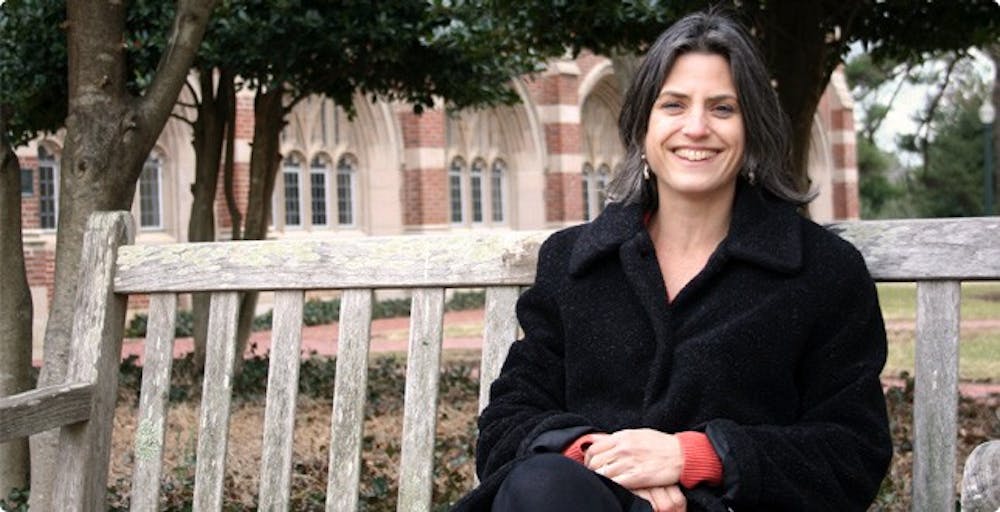As an American studies professor, Laura Browder has expertise in many areas. She could talk to you about the history of the Glock and then switch to a topic about women in combat and her ties to the Communist Party USA.
Browder teaches a first-year seminar called Guns in America. Many students who take the class come in with an interest of guns and a personal history with guns.
The class takes about seven field trips throughout the semester, including a day at a local shooting range and the gun show, where students take pictures to create a slideshow presentation about their observations. Students enjoy both trips by taking Snapchats of themselves at the range and enjoying food at the gun show, but are left with mixed emotions, Browder said.
“It’s hard for them to balance it out with the high suicide rates and overall high rates of gun violence," Browder said. Her FYS classes have often occurred around the same time as school shootings, like the one in Sandy Hook, so students enter the class with strong emotions that are complicated even more by the field trips.
Before coming to University of Richmond, Browder taught at Virginia Commonwealth University. She was excited to come to Richmond because of the smaller class sizes.
“I can integrate my students into my own research," she said.
When she’s not taking her students to gun shows, Browder works on an array of projects surrounding guns and the role of women with guns. One of the projects she has completed is her book "When Janey Comes Marching Home: Portraits of Women Combat Veterans," which began as an article and turned into an exhibit. The book lists interviews and photographs of 52 women from all branches of service.
Writing her book and gathering all necessary information was not an easy task for Browder. She had to figure out how to access active-duty letters that could be accessed only with approval from the Pentagon. After receiving the letters, creating another narrative about women in combat became easier for her.
We need to give up our fantasy on women and guns, Browder said. She then added that the lack of attention women receive for fighting for our country is not equal to the glamorized, sexy way armed women are often portrayed in the media. Browder's book was widely praised, and its permanent home is in the Smithsonian. After the book's release, Browder spoke to female veterans across the country, leading her to become even more involved with women in combat.
And what of her ties to Communism?
The Browder family has an illustrious history that starts with her grandfather Earl.
During the 1930s, Earl Browder was the head of the Communist Party USA and was the party's candidate in 1936 and 1940. During that period, he often shared secrets with the Soviet Union.
Browder's cousin Bill also has a history with the Russian government. He was one of the first investors in Russia after the fall of the Berlin Wall, with a successful $4 billion hedge fund. But a fallout with Russian President Vladimir Putin forced him to flee the country and pushed Russia to freeze his assets. He now lives with an armed guard in London.
“It’s surreal," Browder said, musing on her family’s history. She tried to visit Russia to do research a few years ago, but with the Russian government searching for anyone with connections to her cousin, she knew she couldn't go. Her cousin even said that if she did, “The best thing that could happen to you is to be detained.”
Browder continues to work on various projects that she manages by keeping daily to-do lists. With the help of these lists she can tackle all of her interests. All the work she does allows her to accomplish many things, and one of the most important things is the learning that occurs inside and outside of the classroom.
The most amazing part about the work she does is that it allows her to expand students' worlds and her world, Browder said.

